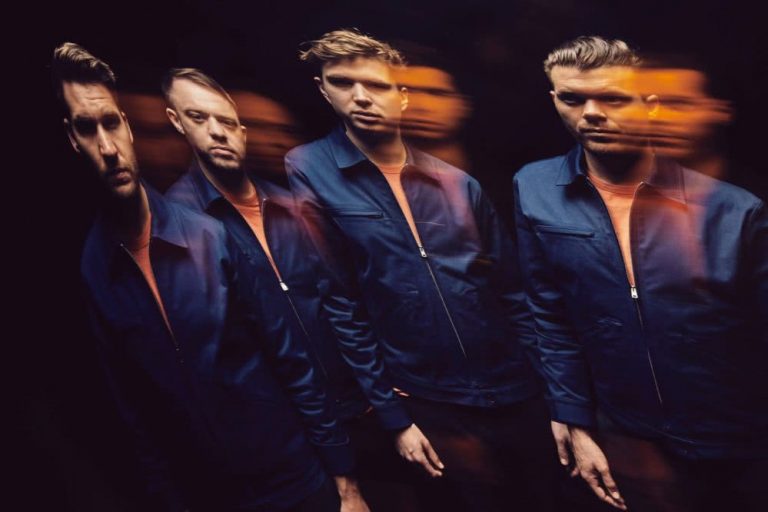UK indie/art-pop masters Everything Everything have unleashed their follow up to the universally praised Get To Heaven with a darker, more electronic tone on their fourth LP, A Fever Dream. What makes this band stick out amongst their indie contemporaries is the level of skill that these musicians have as instrumentalists, as an ensemble and as crafters of the hooks that etch themselves in your head; all of which are enormously evident on this album.
Lead vocalist Jonathan Higgs states that the band “didn’t try to write any soft songs” for A Fever Dream, and as such the more subdued feel that ended up pressed into the record felt like a natural occurence. It’s a more cohesive and linear album than its predecessor, indicative of a change in the band’s songwriting process. There’s more clarity in its sonic exploration – every element is precise and carefully honed.
Higgs puts this down to a process more intimate and collaborative than ever before. “It’s been very collaborative between me and Alex in this last record,” he says. “We wrote a lot of it next to each other, which is something we haven’t done before. It used to be [us] just writing it by ourselves and bringing it in, but on this one it was a lot more collaborative from the ground up.”
Make no mistake: there are still plenty of experiments that the band implements across this album. Like most of Everything Everything’s material, these tracks are pop at their core, but there’s a subtle bitterness surrounding A Fever Dream’s central themes.
“The record is sort of about the world,” says Higgs. “I mean, all our records are about the world, but this one is sort of just about how weird it is; how everyone’s turned on each other and we’ve all become the enemy; in the end, how it’s all turning to shit.”
The band have fully embraced the paradoxical nature of this artistic expression, playing songs about disenchantment with as much liveliness and vigour as they can muster. Higgs explains that he finds this method of performance to be ultimately more effective in getting their message across.
The record is sort of about the world … how everyone’s turned on each other and we’ve all become the enemy; in the end, how it’s all turning to shit.
“High energy songs are a more powerful way to express negativity,” he says. “It works better for us than playing soft. It’s a good way to kind of find the brightness in a dark situation. It’s good to be able to express something negative and do it in a way that can be danced to. It’s impossibly hard for us to sound angry with what we’ve got, so we channel it all in our high energy performances.”
What makes their music so special in the indie-pop realm is their knack for creating instantaneously catchy alt-pop tunes which are equal parts eccentric and accessible. It’s hard to tell which aspect of the music gets more attention, but it’s the band’s goal to continue improving their songwriting ability.
“The quirkiness kinda comes naturally,” says Higgs. “At first we were mainly about the quirks, because we didn’t really have any idea what we were doing, but as we’ve gone on we’ve tried to write the best songs that we can.”
It isn’t only their songwriting aptitude that makes them a band to watch: live, they prove themselves expertly skilled musicians. Their sets demonstrate surprising discipline, the band synchronised with utmost precision. Their classical training could be responsible.
It’s good to be able to express something negative and do it in a way that can be danced to. It’s impossibly hard for us to sound angry with what we’ve got.
“We’re all classically trained, but not on our current instruments,” Higgs admits. “I was on the trumpet. We picked up rock’n’roll instruments because when you’re in your teens, playing the trumpet isn’t exactly as cool as being a rock singer.”
Fair – unless you’re in a ska-punk band, good luck getting groupies with a trombone.
But back to the music: A Fever Dream, like its predecessors, bears traces of electronica and indie-rock, but Higgs named Arcade Fire as the biggest influence on the band. The question had to be asked, given the infamy of Arcade Fire’s latest release; and Higgs was ready and willing to offer his two cents on Everything_Now.
“We thought the new album was a prank, just with the whole roll-out and campaign,” he laughs. “But it looks like the joke’s been a bit old now; it’s probably real at this point. Still, a huge influence on us.”
A Fever Dream is available now through Sony Music Australia.

































